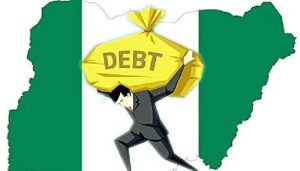
The presidency has given more details about Nigeria’s debt condition under the administration of President Bola Tinubu.
The presidency explained that contrary to some reports that Nigeria’s debt stock increased, the nation’s debt stock decreased by 15% in dollar terms in Q1 2024.
It added that the government is able and committed to repaying its debt.
The explanation was given on Saturday, 31st August, by the Special Assistant to President Tinubu on Social Media, Dada Olusegun, in response to a report by StatiSense, which quoted the debt profile of Nigeria under the nation’s presidents starting from the time of Shehu Shagari to the current administration of President Tinubu.
The presidential media aide explained that the increase in public debt under the current administration is largely due to economic factors, not increased borrowing.
He argued that the Tinubu government is reducing the nation’s debt profile.
Olusegun said President Tinubu’s administration is committed to transparency and responsible economic management.
The bullet points in the post by Olusegun via his X account, titled, ‘Debunking the Myth: Nigeria’s External Debt Under President Bola Tinubu’ are highlighted below.
– Nigeria’s total debt stock decreased by 15% in dollar terms in Q1 2024, contrary to claims of rising debt.
– The increase in public debt is largely due to economic factors, not borrowing:
– Depreciation of the naira exchange rate (from N899.39/$ to N1,330.26/$)
– Interest rate changes
– Securitization of Ways and Means
– The current administration inherited a legacy of N22.7 trillion in outstanding Ways and Means, now being audited and securitized.
– The current Ways and Means deficit stands at N3.4 trillion, offset by operating surpluses from revenue-generating agencies.
– Nigeria’s (FG only) external debt stands at $42 billion.
– Multilateral creditors are owed $20.82bn, while China is owed $5bn.
– The federal government’s economic reforms have impacted foreign exchange and interest rates, contributing to the public debt spike.
– The government’s capacity to pay its debts is intact, with a revamped financial system.
The presidency noted that the addition of Nigeria’s external debt figure provides further context to the discussion, highlighting the country’s overall debt situation while emphasizing the factors contributing to the public debt increase.
The post Presidency Releases Details, Facts About Nigeria’s Debts Under Tinubu appeared first on Naija News.
